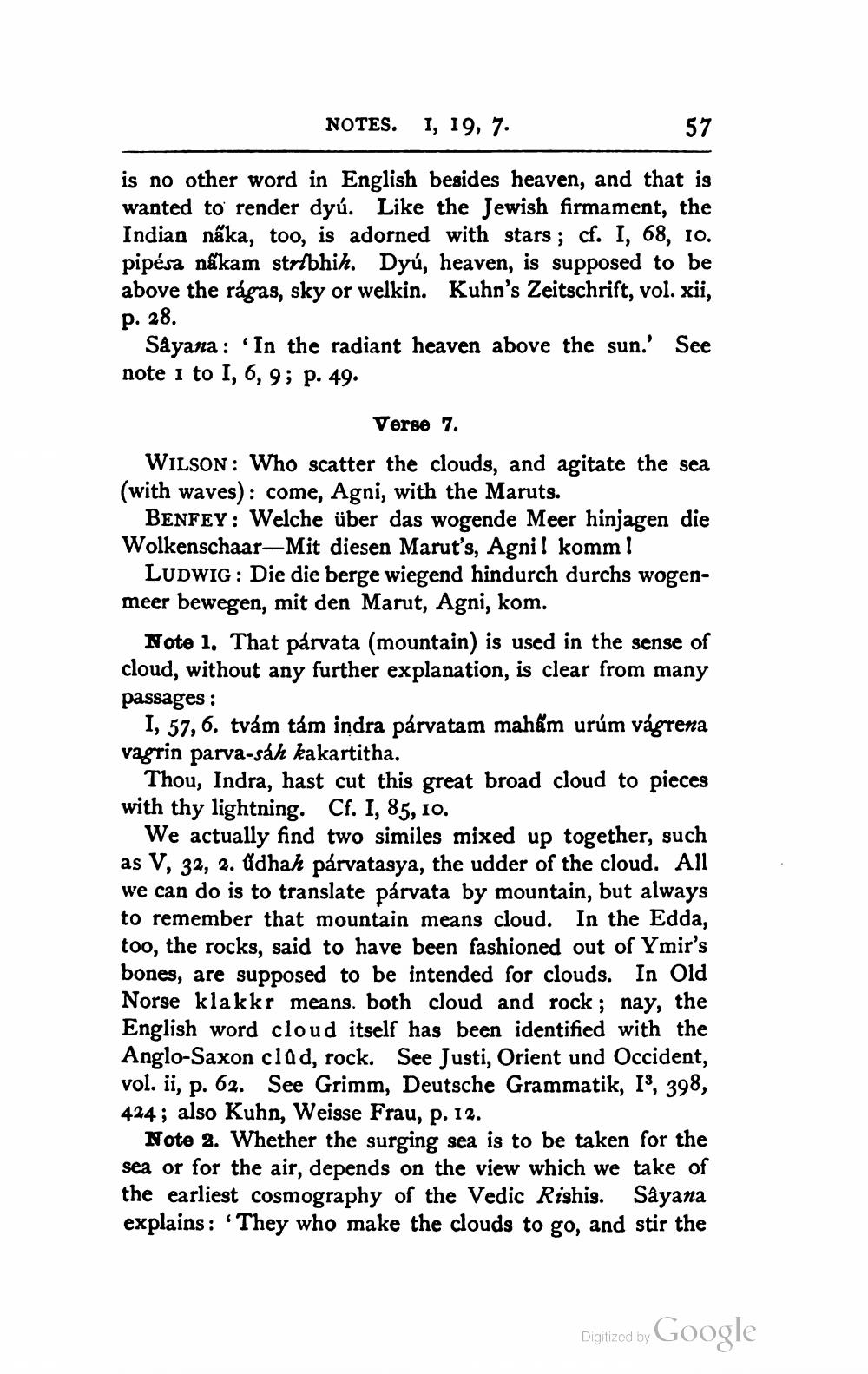________________
NOTES. I, 19, 7.
57
is no other word in English besides heaven, and that is wanted to render dyú. Like the Jewish firmament, the Indian nấka, too, is adorned with stars; cf. I, 68, 10. pipesa nākam stríbhih. Dyú, heaven, is supposed to be above the rágas, sky or welkin. Kuhn's Zeitschrift, vol. xii, p. 28.
Såyana : 'In the radiant heaven above the sun. See note i to I, 6, 9; p. 49.
Verse 7. WILSON: Who scatter the clouds, and agitate the sea (with waves): come, Agni, with the Maruts.
BENFEY: Welche über das wogende Meer hinjagen die Wolkenschaar—Mit diesen Marut's, Agnil komm!
LUDWIG: Die die berge wiegend hindurch durchs wogenmeer bewegen, mit den Marut, Agni, kom.
Note 1. That párvata (mountain) is used in the sense of cloud, without any further explanation, is clear from many passages :
1, 57, 6. tvám tám indra párvatam mahấm urúm vágrena vagrin parva-sah kakartitha.
Thou, Indra, hast cut this great broad cloud to pieces with thy lightning. Cf. I, 85, 10.
We actually find two similes mixed up together, such as V, 32, 2. Adhah párvatasya, the udder of the cloud. All we can do is to translate párvata by mountain, but always to remember that mountain means cloud. In the Edda, too, the rocks, said to have been fashioned out of Ymir's bones, are supposed to be intended for clouds. In Old Norse klakkr means. both cloud and rock ; nay, the English word cloud itself has been identified with the Anglo-Saxon clad, rock. See Justi, Orient und Occident, vol. ii, p. 62. See Grimm, Deutsche Grammatik, 19, 398, 424; also Kuhn, Weisse Frau, p. 12.
Note 2. Whether the surging sea is to be taken for the sea or for the air, depends on the view which we take of the earliest cosmography of the Vedic Rishis. Sayana explains : They who make the clouds to go, and stir the
Digitized by Google




